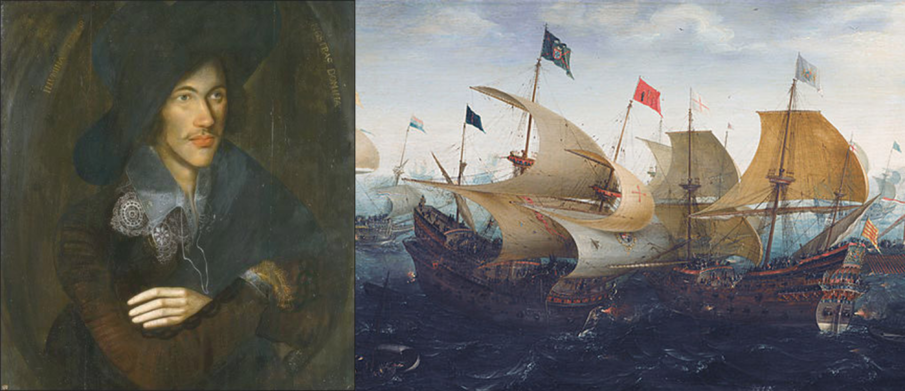No man is an Iland, intire of it selfe; every man is a peece of the Continent, a part of the maine; if a Clod bee washed away by the Sea, Europe is the lesse, as well as if a Promontorie were, as well as if a Mannor of thy friends or of thine owne were; any mans death diminishes me, because I am involved in Mankinde; And therefore never send to know for whom the bell tolls; It tolls for thee.”
In more modern English:
No man is an island, entire of itself; every man is a piece of the continent, a part of the main. If a clod be washed away by the sea, Europe is the less, as well as if a promontory were, as well as if a manor of thy friend’s or of thine own were: any man’s death diminishes me, because I am involved in mankind, and therefore never send to know for whom the bells tolls; it tolls for thee.”
John Donne’s “For Whom the Bell Tolls” is actually an excerpt from “Devotions Upon Emergent Occasions” written in 1624. The poem was made famous in Ernest Hemingway’s book, “For Whom the Bell Tolls,” which tells the fictional story of an American man working with locals in the Spanish Civil War to blow up a bridge. The book takes this particular passage and explores it further. It discusses the ebbing away of the soul as men kill each other and the world descends into a blood-drunken chaos. It admits that killing is sometimes necessary, but always wrong — and while that internal conflict might not manifest in a dramatic, tearful episode of flashbacks, it might still quietly ebb away at the spirit.
When John Donne wrote “Devotions Upon Emergent Occasions,” he was the Dean of St. Paul’s, an official in the Church of England at the time. He was sick and thought he was going to die, and so he wrote the 44 page book of devotions that deals with life and death and sickness and health.
However, Donne wasn’t always known for his piety — in fact, most literary scholars today know him for his highly sexual, metaphysical poems. “The Flea,” for example uses the metaphor of a flea as he tries to convince someone to have sex with him (a metaphor that might not resonate with us today, but would have been both humorous and erotic then … and perhaps a little shocking). In his youth, his lived fast and wrote love and erotic poetry, and as he grew older he delved into religion and worked in the church. He lived in poverty and traveled a lot as a young man; he was elected to parliament and was a prominent figure in the church in his later years. He lived a variety of lives in the span of one.
Donne also knows the price of life, as is apparent in his writing. Besides losing his eighteen year old daughter, he was no stranger to war. During his travels, he fought in the Anglo-Spanish War, and was present at the capture of the Spanish city of Cádiz in 1596. The Spanish lost 32 ships in the battle, and the English and their allies lost three galleons, two other ships and approximately 2,000 of their own were killed. He was also on the massive naval failure called the Essex-Raleigh Expedition, as the English Navy attempted to destroy a portion of the Spanish fleet, losing over 120 ships in the process and leading to the deaths of approximately 6,000 English men in the fighting.
To say that “each man is a piece of the continent” is to include the enemy, and Donne would have realized that. In his metaphor, Europe is the continent that represents humanity, and each war takes more than a little clod from the continent. While war may be at times necessary, it can’t be forgotten that with each life taken, “Europe is the less.”
Already have an account? Sign In
Two ways to continue to read this article.
Subscribe
$1.99
every 4 weeks
- Unlimited access to all articles
- Support independent journalism
- Ad-free reading experience
Subscribe Now
Recurring Monthly. Cancel Anytime.











COMMENTS